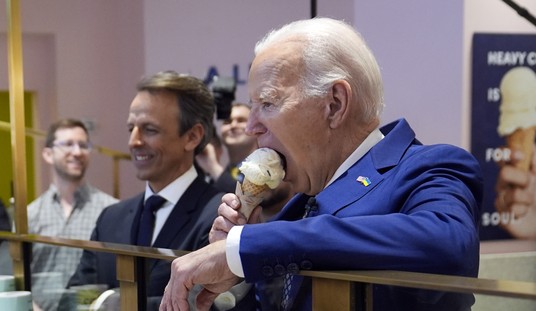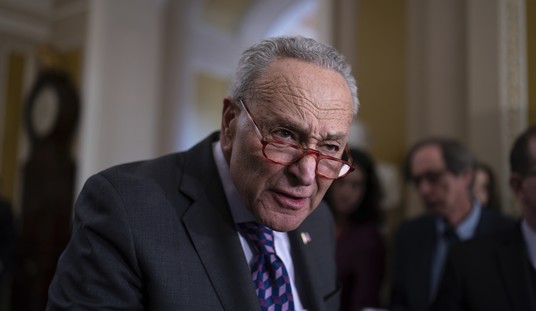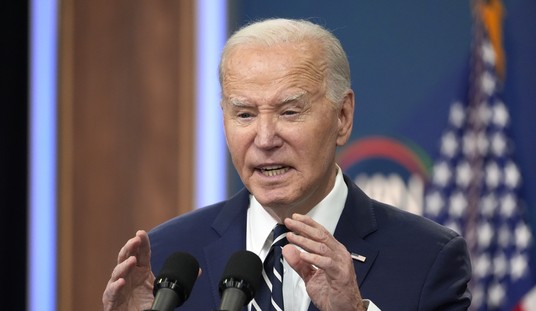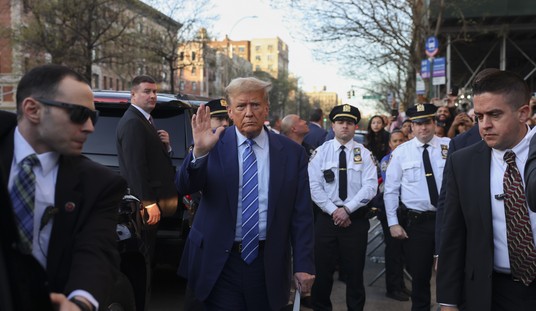When the Iran nuclear deal was acceded to by the US Senate, one of the requirements was regular reports from the President to Congress on the status of Iranian compliance:
The President shall, at least every 90 days, determine whether the President is able to certify that:
- Iran is fully implementing the agreement,
- Iran has not committed a material breach of the agreement,
- Iran has not taken any action that could significantly advance its nuclear weapons program, and
- suspension of sanctions against Iran is appropriate and proportionate to measures taken by Iran with respect to terminating its illicit nuclear program and vital to U.S. national security interests.
The first 90-day report of the Trump presidency was due today:
The Honorable Paul D. Ryan
Speaker of the House of Representatives
Washington, DC 20515Dear Mr. Speaker:
This letter certifies that the conditions of Section 135(d)(6) of the Atomic Energy Act of 1954 (AEA), as amended, including as amended by the Iran Nuclear Agreement Review Act of 2015 (Public Law 114-17), enacted May 22, 2015, are met as of April 18, 2017.
Notwithstanding, Iran remains a leading state sponsor of terror through many platforms and methods. President Donald J. Trump has directed a National Security Council-led interagency review of the Joint Comprehensive Plan of Action (JCPOA) that will evaluate whether suspension of sanctions related to Iran pursuant to the JCPOA is vital to the national security interests of the United States. When the interagency review is completed, the administration looks forward to working with Congress on this issue.
Sincerely,
Rex W. Tillerson
Predictably, Trump is being criticized for this certification because during the campaign he repeatedly excoriated the deal (unsurprisingly, Trump has more than one position on the Iran nuclear deal).
As with so many things, there are a lot of moving parts here. First, this is a certification that Iran is in compliance with the agreement. It is not an affirmation that the agreement is useful. In fact, the second paragraph makes it fairly clear that the thinking in the administration is that the agreement is not worthwhile. The certification is based upon US intelligence and upon the reports by the IAEA. Via the Jerusalem Post:
Before implementation, Iran was compelled to reduce its uranium stockpile to less than 300 kilograms, neuter its plutonium heavy-water reactor, cease nuclear enrichment operations in its mountain facility in Fordow, disconnect and store two thirds of its centrifuges, and allow for international inspectors to set up new monitoring systems in its declared facilities.
So to Western governments, many of the most urgently troubling dimensions of Iran’s nuclear work were actually addressed before the agreement formally began. And all of these tasks were verified as complete in January.
To remain in compliance, Iran now must maintain those levels of enrichment, number of active facilities and size of its nuclear infrastructure throughout several years– the number of years depending on the sunset clauses for each specific provision.
While some broad terms of the agreement are indefinite, most provisions in the deal end in either ten or 15 years. And many of those provisions address highly technical aspects of Iran’s nuclear program: From its acquisition of nuclear-related materials to its experimentation or use of those materials, and everything in between.
And some of Iran’s actions are easier to verify than others, which makes it impossible to state with absolute confidence that Iran is abiding by the agreement in its entirety. This is a source of many critical concerns, although the architects of the deal say that no perfect deal could have been achieved.
Iran has thus far abided by its commitment to keep its enrichment of uranium under 3.67 percent, for example, and it is operating only with the agreed-upon 5,060 1970s-era centrifuges. Higher enrichment levels achieved in more efficient and advanced centrifuges would drop the time Iran would need to acquire enough highly-enriched uranium for a nuclear bomb, effectively to zero.
What is more difficult to verify is whether Tehran is producing or acquiring plutonium or uranium metals or their alloys, or conducting R&D on plutonium or uranium metallurgy, in violation of the agreement, from purchases on the black market and in undeclared research facilities.
The inspection regime in the JCPOA is hailed as the most advanced ever achieved through diplomacy, but it still governs only Iran’s declared nuclear supply chain: The uranium mines, mills, storage facilities and enrichment facilities that Tehran chooses to tell the UN about. Thus, UN declarations that Iran is in compliance in actuality refer to Iran’s compliance to the terms of the JCPOA within those facilities.
The deal does include a well-known clause that allows UN inspectors to request access to undeclared sites it suspects are hosting nuclear-related activity. Iran may object to such a request, which would start the clock on a litigation process that can last no longer than 24 days. This mechanism has yet to be tested.
Based on the information available, the administration would have been hard pressed to refuse to certify that Iran is in compliance.
After the certification, Secretary of State Rex Tillerson made it very clear that he views Iran as a bad actor in the region, that it remains a state sponsor of terrorism, and that more sanctions may be imposed upon Iran. You really need to view this whole video or read the whole transcript.
From Tillerson’s press availability:
Any discussion of Iran is incomplete without mentioning the JCPOA.
The JCPOA fails to achieve the objective of a non-nuclear Iran; it only delays their goal of becoming a nuclear state. This deal represents the same failed approach of the past that brought us to the current imminent threat we face from North Korea. The Trump administration has no intention of passing the buck to a future administration on Iran.
The evidence is clear. Iran’s provocative actions threaten the United States, the region, and the world.
As I indicated at the beginning, the Trump administration is currently conducting a comprehensive review of our Iran policy. Once we have finalized our conclusions, we will meet the challenges Iran poses with clarity and conviction. Thank you.
MODERATOR: We’ll take a few questions. Andrea Mitchell.
QUESTION: Mr. Secretary, by your own letter to the Speaker of the House, Iran is complying with the terms of the nuclear deal. If you break out of that deal, won’t that send a signal to North Korea and other rogue nations that the U.S. can’t be trusted to keep its end of the bargain? And Iran is already being sanctioned for its terrorism, for its missile (inaudible) by the U.S. Is another option – one that many Republicans on the Hill have suggested – to increase those sanctions to punish Iran for those behaviors?
SECRETARY TILLERSON: Well, Andrea, I think it’s important in any conversation on the JCPOA – and I think this was one of the mistakes in how that agreement was put together, is that it completely ignored all of the other serious threats that Iran poses, and I just went through a few of those with you. And that’s why our view is that we have to look at Iran in a very comprehensive way in terms of the threat it poses in all areas, of the region and the world, and the JCPOA is just one element of that. And so we are going to review completely the JCPOA itself. As I said, it really does not achieve the objective. It is another example of buying off a power who has nuclear ambitions; we buy them off for a short period of time and then someone has to deal with it later. We just don’t —
QUESTION: So should we break out of it?
SECRETARY TILLERSON: We just don’t see that that’s a prudent way to be dealing with Iran, certainly not in the context of all of their other disruptive activities.
Last week the US Treasury announced sanctions against some Iranians on the grounds that they are human rights abusers. I suspect we will see the Iranian Revolutionary Guard Corps and its leadership hit with comprehensive sanctions in the near future. This group was the primary beneficiary of the $1.7 BILLION IN CASH that Obama gave the Iranians. We may not withdraw from the nuclear agreement per se, but it is clear that the administration is not willing to evaluate Iran’s compliance with one agreement in a vacuum when it continues to be an outlaw nation.













Join the conversation as a VIP Member